First published 1998 by M.E. Sharpe
Published 2015 by Routledge
2 Park Square, Milton Park, Abingdon, Oxon OX14 4RN
711 Third Avenue, New York, NY 10017, USA
Routledge is an imprint of the Taylor & Francis Group, an informa business
Copyright 1998 Taylor & Francis. All rights reserved.
No part of this book may be reprinted or reproduced or utilised in any form or by any electronic, mechanical, or other means, now known or hereafter invented, including photocopying and recording, or in any information storage or retrieval system, without permission in writing from the publishers.
Notices
No responsibility is assumed by the publisher for any injury and/or damage to persons or property as a matter of products liability, negligence or otherwise, or from any use of operation of any methods, products, instructions or ideas contained in the material herein.
Practitioners and researchers must always rely on their own experience and knowledge in evaluating and using any information, methods, compounds, or experiments described herein. In using such information or methods they should be mindful of their own safety and the safety of others, including parties for whom they have a professional responsibility.
Product or corporate names may be trademarks or registered trademarks, and are used only for identification and explanation without intent to infringe.
Photo, p. ii: Portrait of Kaiser Franz Joseph I painted by Wilhelm List, 190406. Courtesy of the sterreichische Postparkasse, Vienna.
Library of Congress Cataloging-in-Publication Data
Strong, George V., 1933
Seedtime for fascism : the disintegration of Austrian political culture, 18671918 / George V. Strong.
p. cm.
Includes bibliographical references and index.
ISBN 0-7656-0189-3 (alk. paper). ISBN 0-7656-0190-7 (pbk. : alk. paper) 1. Political cultureAustria. 2. AustriaPolitics and government18671918. 3. NationalismAustria. 4. AustriaEthnic relations. 5. SocialismAustriaHistory19th century. 6. ConservatismAustriaHistory19th century. I. Title.
JN2012.3.S85 1998
306.20943609034DC21
97-30245
CIP
ISBN 13: 9780765601902 (pbk)
ISBN 13: 9780765601896 (hbk)

1
 A Framework of Reference
A Framework of ReferenceA study of the political culture that took hold in Austria-Hungary after 1850 has relevance for Americans today in that the history of the Dual Monarchy may be viewed as a failed experiment by a state that attempted to sustain itself by reconstructing itself on the basis of its newly discovered cultural diversity. It needs no saying that today cultural diversity is an issue all Americans face. What this issue will bring to Americans cannot be foreseen. But old Austria, for her part, never found a formula whereby her diversity might be accommodated; granting its disparate parts civil recognition within a popular and liberal political framework brought about a fatal balkanization of the state as a whole, and so the state ultimately disintegrated into various combinations of its components under circumstances that robbed old Austrias inhabitants of the fruits of her vibrant civilization.
There is yet another compelling reason why the workings of the Dual Monarchy during the era of Franz Joseph both fascinate and perplex historians. It would seem that almost every symptom of the societal ailments that bedeviled the European twentieth century (and indeed those who lived beyond Europes shores) was to be found enmeshed in the glitter and decadence of Austrian culture. On the political plane, one sees the rise of the prototype of modern mass political parties, fused along ideological lines and thereby creating a turgid and turbulent atmosphere founded on the politics of victimization and loud demands for the blood of scapegoats.1 One heard at the same time, often but not exclusively linked with this politicization of the masses, the sanguine rhetoric of prejudice on the basis of race and gender.2 One also heard voices calling for rough-hewn dictatorship as a solution to the seeming disintegration of things.3 It is not easy to overlook that the future fhrer of the Third Reich fabricated many of his preposterous views between the years 1907 and 1913 while walking the streets of Franz Josephs imperial city.4 Moreover, Benito Mussolini and both Lenin and Stalin knew Vienna before they made their dolorous appearances on Clios stage. It was in Vienna that Sigmund Freud destroyed the older assumptions of the fundamental perfectibility of human nature with his ideas of our primeval drives motivated by an insufficiently repressed subconscious; at least in the view of some, this rendered the belief in forgiveness and resurrection irrelevant to life, even relegating it to the dustbin as the superstition of an outworn past. Further, Viennas spheres of artistic creation, whether in drama, music, or art, witnessed challenges from experimental subgroups at least in part propelled by Freudian assumptions that, whatever their individual merits, generated immense antagonism and rippled through the many complex layers of Austrian society. And of course all this cacophony in the political, intellectual, and artistic spheres of activity was accompanied by social misery and individual degradation in both the agricultural and industrial sectors of Austrian life, generated by the impact of capital and technology as these destroyed the traditional ways of the old rooted communities. It would make a happy ending nonetheless if one could point to some signs of resolution out of these horrendous developments. But one cannot. The era of Franz Joseph ended in the most complete catastrophe: the outbreak of world war, in which young men once prized for being made in the image of God were transformed into common cannon fodder, and which led to the disintegration of the promises and potential not only of Austrian civilization but of Europes as well.5
These losses, it might be added, were an unintended result of the activities of a diverse mix of political reformers and dreamers, extending from Austrian socialists such as Otto Bauer and Karl Renner to the American president Wood-row Wilson. But then too, the glittering civilization lost in 1918 itself was the unintended result of self-interested state-building activity by a diverse group of adventurers operating prior to the eighteenth century in the lands that came to be a part of the Habsburg realm. Indeed, the end results of historical causality are most often unintended, because of the complexity of the impact of causality on events. But this is not to say that nothing can be learned from history. And so the outcome of Austrias confrontation with her diversity should be a compelling reason why twenty-first-century Americans, being driven to embark on social experimentation of their own, might wish to read the history of Austria-Hungary.



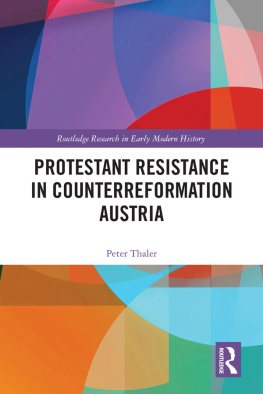
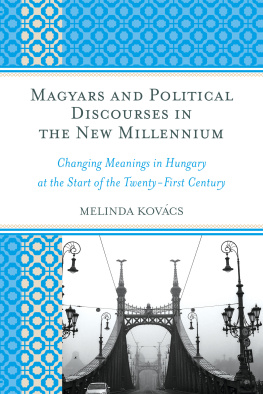
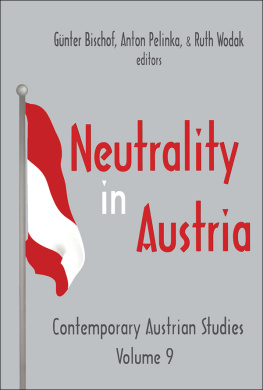
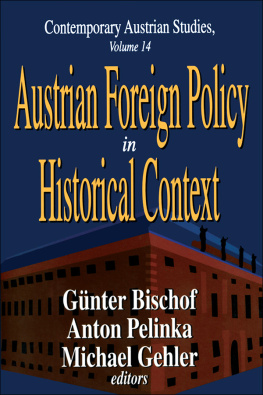
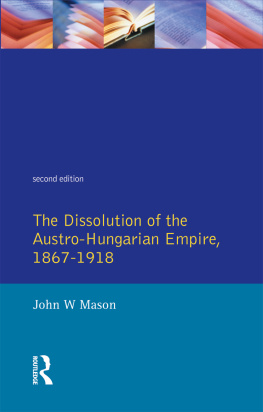
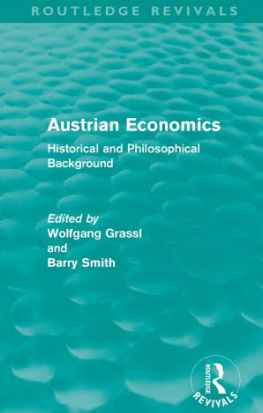



 Map of Austria-Hungary, originally published in Austria-Hungary by G.E. Mitton.
Map of Austria-Hungary, originally published in Austria-Hungary by G.E. Mitton. 1
1